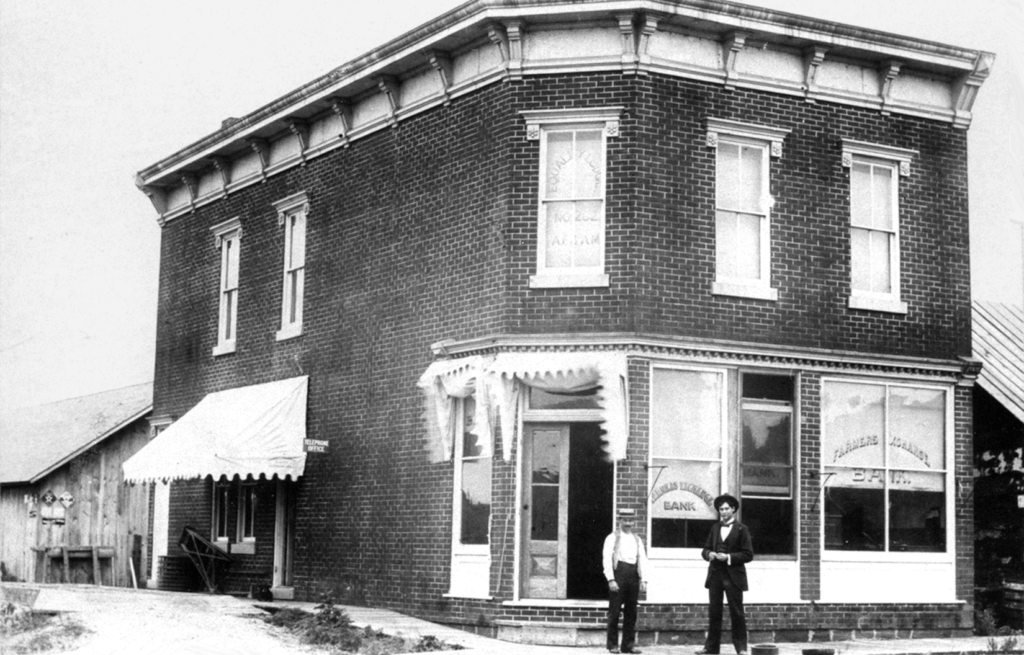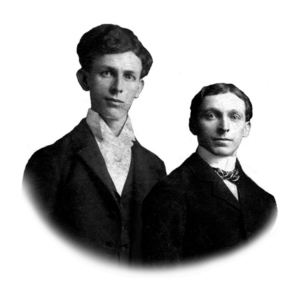
SRHS
Steamboat Rock Historical Society
A NEW CENTURY
THE TELEPHONE
The date of the arrival of telephone service in Steamboat Rock, is not known. It is known that the phone system was in operation prior to 1905. It is also obvious that the telephone office had been located in a number of places around the community over the years. The last location that housed the switchboard was the building that now houses the library.
In August of 1905, it was noted in the Eldora Herald, that the telephone office had been moved into the bank building. “Miss Rachael Wickham was the, Hello Girl.” It was operated by the Iowa Telephone Company, but who the actual owners were is not known.

This photo of the Farmers Exchange Bank has a sign for the telephone office on the left side near the awning.
In 1906, Lowell Carpenter purchased the telephone exchange, and in 1910 the switch board was moved into the Carpenter Residence. Lowell Carpenter was one of Steamboat Rock’s barbers. Upon the office being moved, the hours of telephone service were from 9-11 a.m. and 5-7 p.m. only. Sundays were not mentioned. Lulu Cartwright assisted at the telephone office.
There is no record of how many homes had telephone service in the early years, and to what extent the service extended into the country.
The quality of the early country telephones, even up until World War II and after, was just about one step removed from Mr. Bell’s first effort.
But that thin wire, sometimes banging on fence posts and often needing repair, did connect the community. A “line call” or “general ring” would alert everyone to a local problem taking place like a fire or school closing, or birth of a baby.
The fidelity of the early phone service was unbelievable by present-day standards. Of course, the dry-cell batteries may have been weak. But even under the very best of circumstances, you often shouted your message and each conversation was interrupted many times by “Speak up, I can’t hear you.” Afterward, folks wondered if there had been complete understanding on either end of the line.
That doesn’t mean there wasn’t “visiting” on country lines; there was. People were lonesome and it was a “contact with the outside world.” But it took effort.
Oh yes, you always gave the phone a wide berth during thunderstorms; lightning would come in and give you a solid little jolt!
Mr. Sentman once wrote in his Pilot Newspaper, “An electric wire came in contact with a telephone wire Sunday and made things lively around the telephone office, which lasted for about an hour before it was found and removed.”

John & Henry Cramer
© 2020 Steamboat Rock Historical Society | All Rights Reserved
Powered by Hawth Productions, LLC